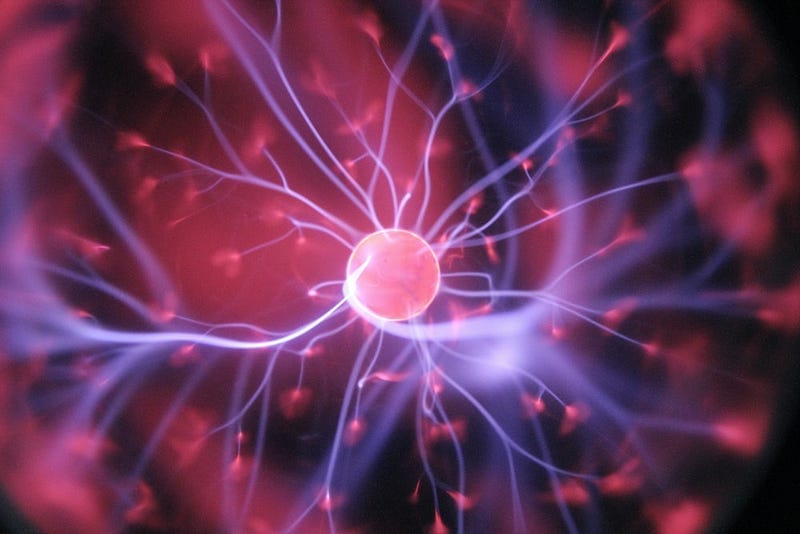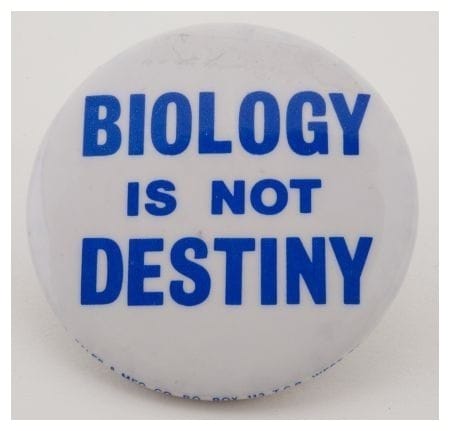Points of View
We know nothing without each other

The amount of discussions/arguments that happen in activist spaces over (but unconscious of) standpoint epistemology is frustrating and I often wish people would just learn about the higher level idea and improve their wider discussions no end through that. I have run and been involved in many trans, LGBT and feminist activist groups that exclude cis, straight, or male people to some extent. This is often not necessarily done out of a need for a safe space. It’s because it takes a lot to educate ppl in the values and instincts you develop from experiencing transphobia, more broadly anti-LGBT abuse, or misogyny, and the relevant “ally” groups often refuse to be told, being habituated to centring their own limited knowledge and preferences on the topic.
Talking about cis people, is this true of all all of them? Absolutely not. I can think of at least five cisgender people off the top of my head who I have met who have the compassion, interest and commitment to justice to not be a pain in the arse while we’re trying to fight with no resources for our liberation. And it’s by no means impossible or a hard task necessarily to be respectful and supportive as part of resisting transphobia. Trans experiences of subordination in the gender system aren’t incomprehensible within an understanding of the wider subordination of various groups that happens under the gender system. The facts of this follow directly from a solid understanding of patriarchy if you are willing to consider views from trans people about that to be at all informative to your own worldview.
The problem tends to be that a huge number of self declared allies are complete self centring jackasses who want to make themselves a saviour. Often they will remind you of their privilege and ability to do stuff for you. For experienced trans liberation activists this often feels like seeing people trading a systematic denial of power to trans people to do for ourselves in return for kudos or good guy points.
The number of cis people who actually sincerely say “well this stuff that’s happening is is unjust and I’m with you what do we do about it?”; that’s a much smaller group of ppl, and it’s almost become a meme among the community that most of those transition. It turns out that there’s a correlation between being able to relate to trans oppression, being able to relate to trans people as equals, as fellow human beings, and the person being trans themself. Among those who are not trans, what is happening is a willingness (to borrow Noel Ignatiev’s framing) to betray their role as cisgender guardians of the gender binary, to engage in treason against cissexism driven by loyalty to humanity. As the old slogan goes:
“We Don’t Want Allies, We Want Accomplices!”
At the root of this all is a capacity for understanding standpoint epistemology. Other human beings in the world occupy a structurally different place to you. You rely on them for knowledge of what it looks like from where they’re standing. You can’t get that another way. It’s true of ALL knowledge. We are epistemically interdependent on each other.
As a possibly daft example I can’t afford to run a space program. So if I want to know what space looks like from the perspective of people who have an outstanding technical capacity to look at space, I go get information about that from organisations with massive telescope arrays. I understand very clearly don’t have a way of verifying what they say is true. I do not have a massive telescope array, or a supercomputer to process deep space imaging signals. I’m unlikely to have the time or ability to double check the maths behind any modelling they use to filter out noise. I have a dependency of trust on what they have to say about the universe. But equally, this sort of trust permeates almost every way we learn about the world. When we read the news, we have to have a qualified degree of trust in the journalists and the editorial process. When we pick up a textbook, we apply a degree of trust in the expertise of the authors. When we ask a friend about how they enjoyed a movie we assume based on what we know about the friend and what they say about it that we can estimate whether we would like to see it also.
Coming back to the topic of how this relates to oppression, a person simply can not reason about the impacts of oppression from knowledge of a particular incident and no other information. Without the context of the knowledge of the person or members of the group that was affected, a person who has never experienced something like that simply does not have the information necessary to understand the impact of a form of oppression. You can not know what needs to be done about it without knowing about how it’s affecting people and what they need. And you can not do that without taking leadership from those affected. And in terms of “allies”, there’s a core of respect for trans people having our specific knowledge (and a variety of trans people having a variety of different perspectives on trans life and needs) that’s just fully absent in the ally-clout-chasing complex and beyond. This is the same with most liberation struggles.
This is one reason why I get frustrated with “only X get to define X oppression” debates where two sides banter back and forth over it, and the debate itself ends up masking whether there is any underlying moral truth which defines a particular type of oppression or not. These debates obscure that “only X get a say” arguments are in reality a pragmatic collapse of a wider more complex decision made following oppressed people getting sick of trying to explain to their allies: “Shut the fuck up and listen to us please. We are human and our experiences matter.”
It’s not literally true that there’s no real definition to things except the subjective experience of one person in a minority group. What is true is that members of that group have knowledge which is systematically excluded from the wider episteme, and that needs fixing. Our whole humanity, our personhood, is often structurally excluded from being taken seriously, even by people who profess to support our human rights.
As an example of the ways this professed, but hollow, help typically goes wildly wrong, there are people who go on Sky News and BBC and argue that gender dysphoric children like I was should be tortured like I was in a dispassionate way that constructs a version of reality that claims to be helping trans kids. “Helping” in these cases is wholly defined by a knowledge of what is helpful that comes from the cis people given the freedom to speak to the public. And of course, they define a good outcome to be “more cis” inherently because that’s all they know. For them health is defined in a way that doesn’t admit trans outcomes. They don’t even consciously understand how abusive this is for the young trans people who are inevitably trapped within their ideological frame, their voices ignored. And when those of us older trans people complain about this we’re called crazy or accused of trying to convert or steal or groom people’s children. The idea that we just happen to understand first hand the experience of being a sexual/gender minority during youth is excluded knowledge, let alone the idea that the child might faithfully be able to articulate their own experiences as they are living through them, and that the pain that they suffer might be worth avoiding. This pain tends to be put down to the “distress of youth” as if being in existential distress is just part of growing up to be ignored, rather than a form of harm, trauma and risk to the child when it is particularly intense.
While that is true of mainstream conversion therapy advocates, cisgender parents running trans organisations treat us and our knowledge the same way all the damn time too. Our knowledge comes from outside what they’re familiar with so it’s seen as dangerous and threatening even though it holds that position of unfamiliarity entirely because we are already disempowered and excluded. Standpoint Theory is also why greener, more optimistic and less experienced trans activists tend to include cis people in their organising from the start — they haven’t been burned badly enough yet and learned the need to not bring in people who trample on and disrespect us. They’re scared of the difficulties we face as a community and only too willing to take the offer of kindness of members of the group who overwhelmingly are responsible for the difficulties we face! Learning to grow organisations and campaigns by bringing in people that you trust, slowly, and not just people who seem enthusiastic, is one of those hard learned things that comes with time.
At the core of taking Standpoint Theory seriously is a rejection of the Cartesian “I think therefore I am” isolationist view of how we access information about the world, instead learning to understand the ecology of information flows between people and communities. We survive interdependently on one another because we relate to other human beings and share knowledge. The question of who we admit knowledge from and who will admit knowledge from us is a political one.


